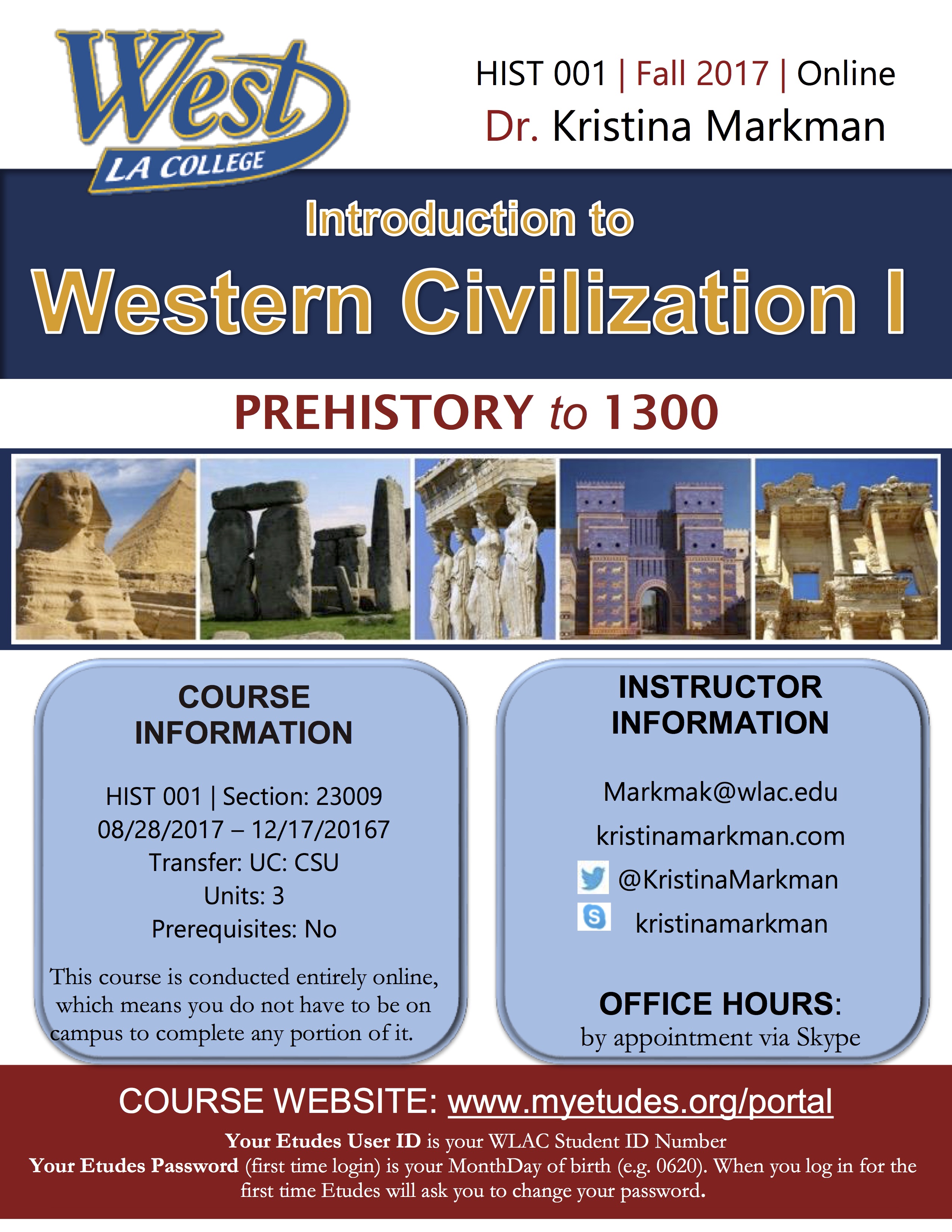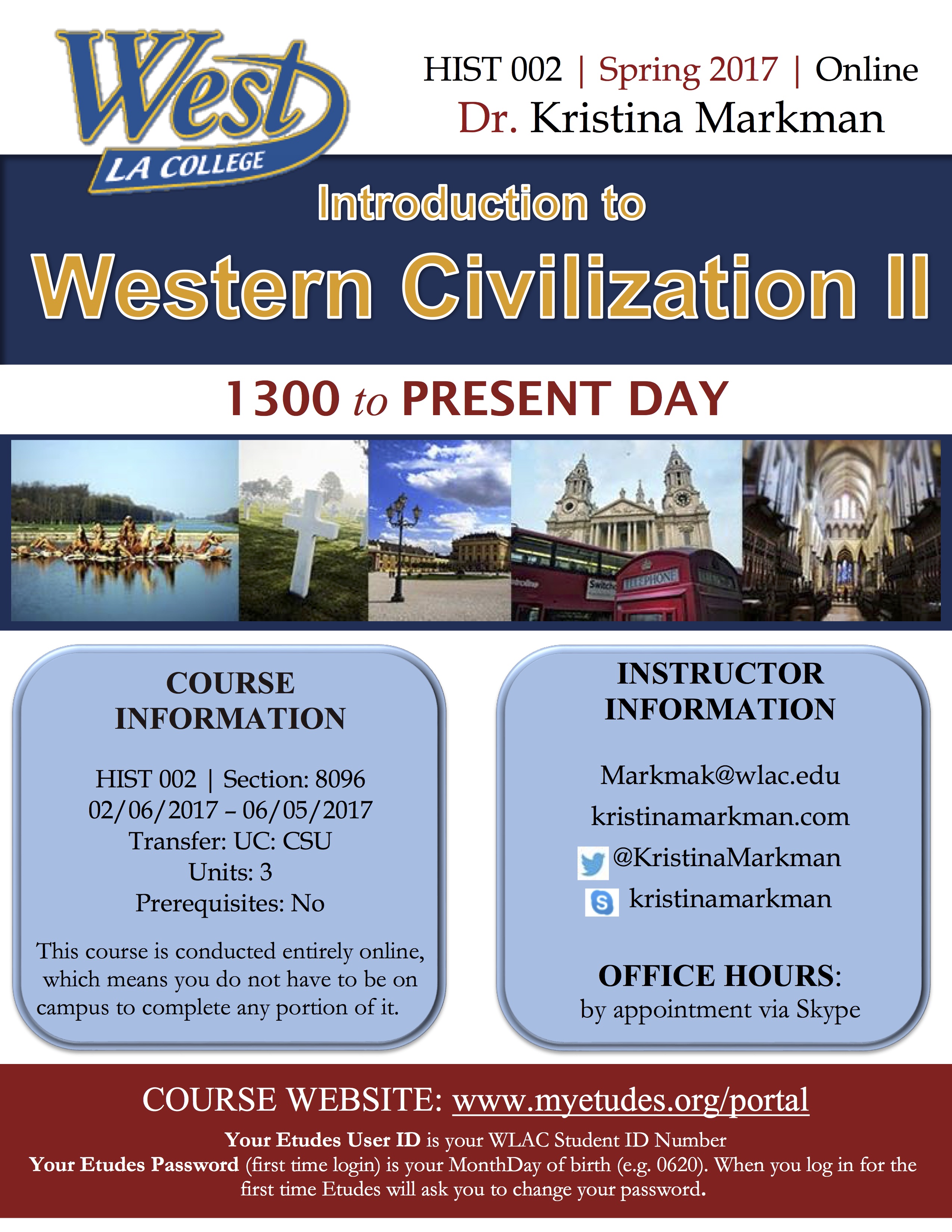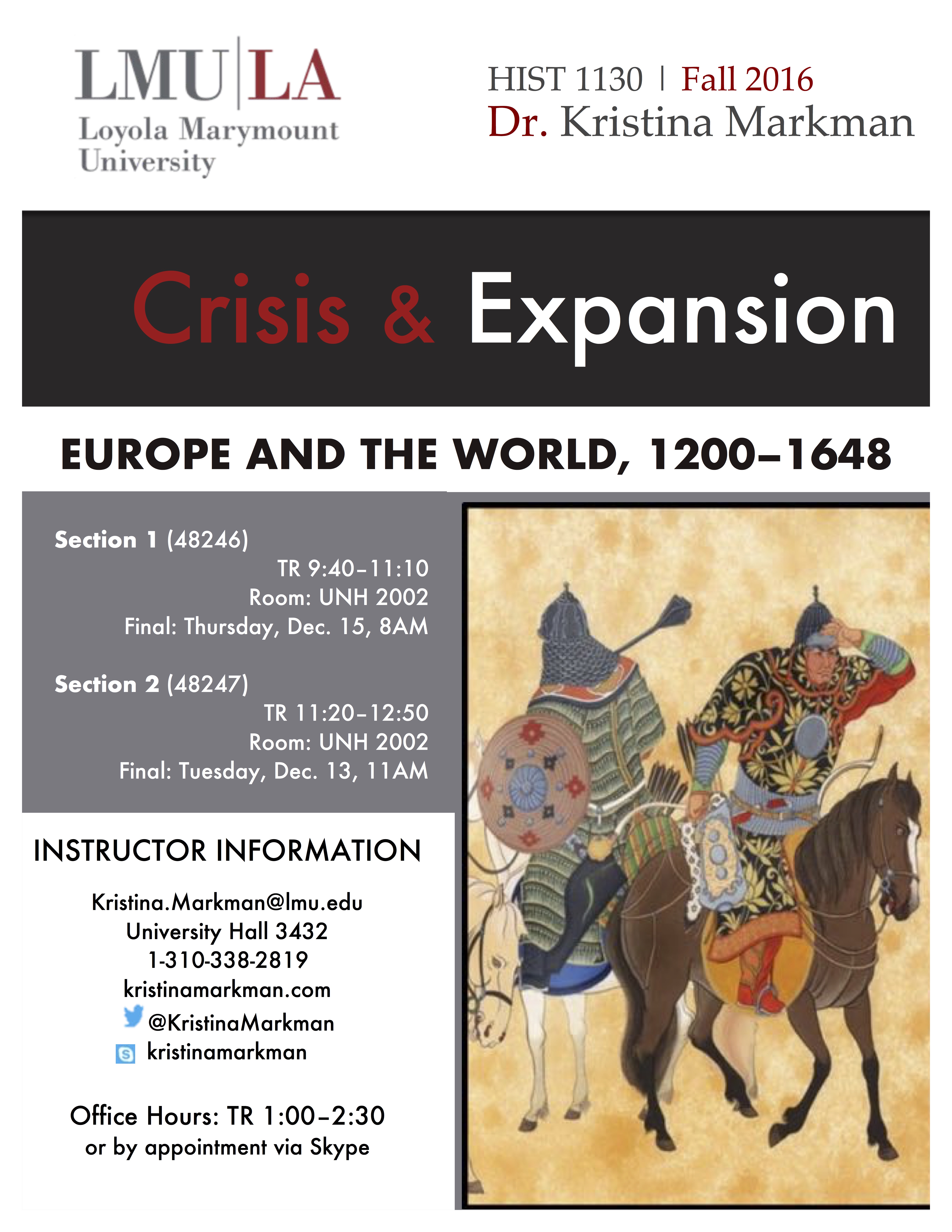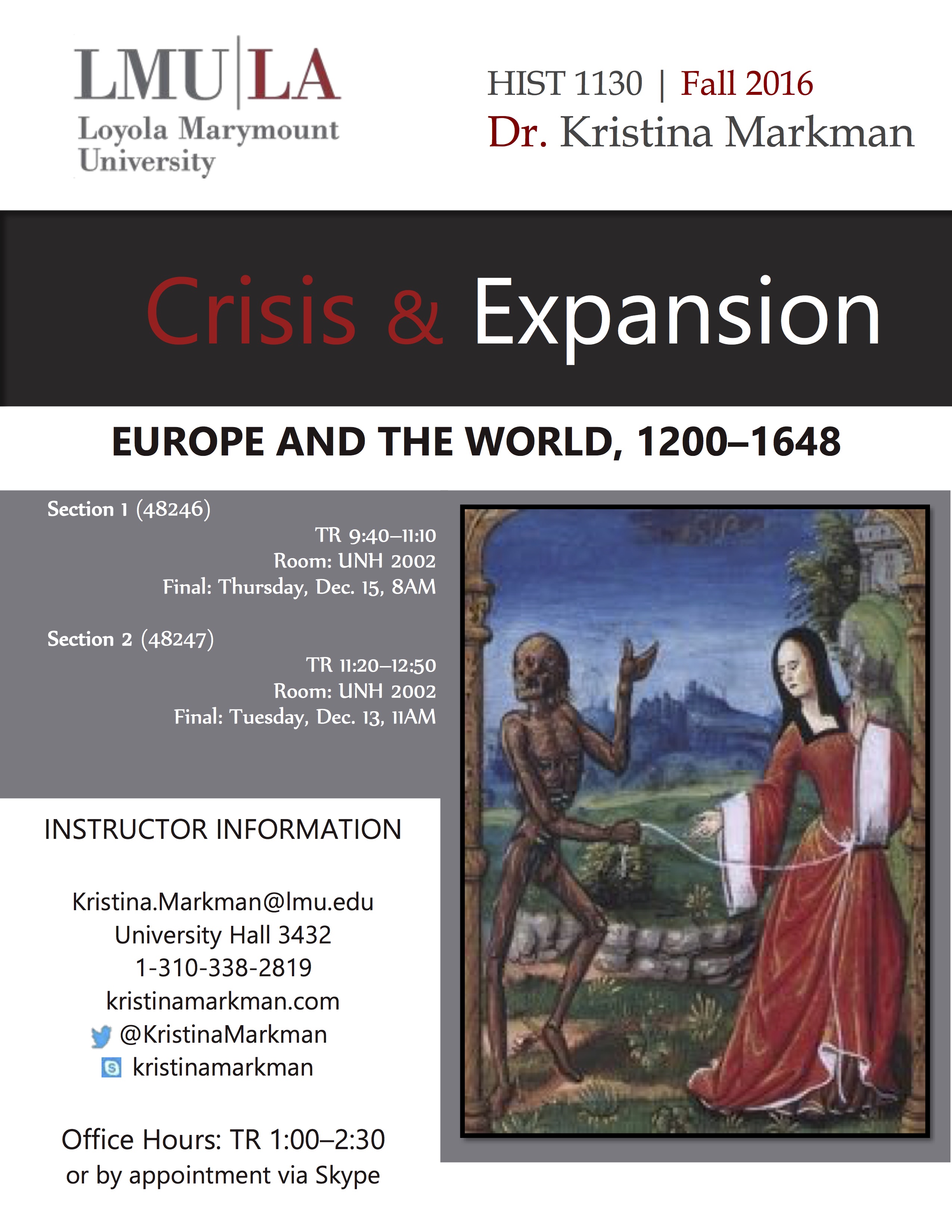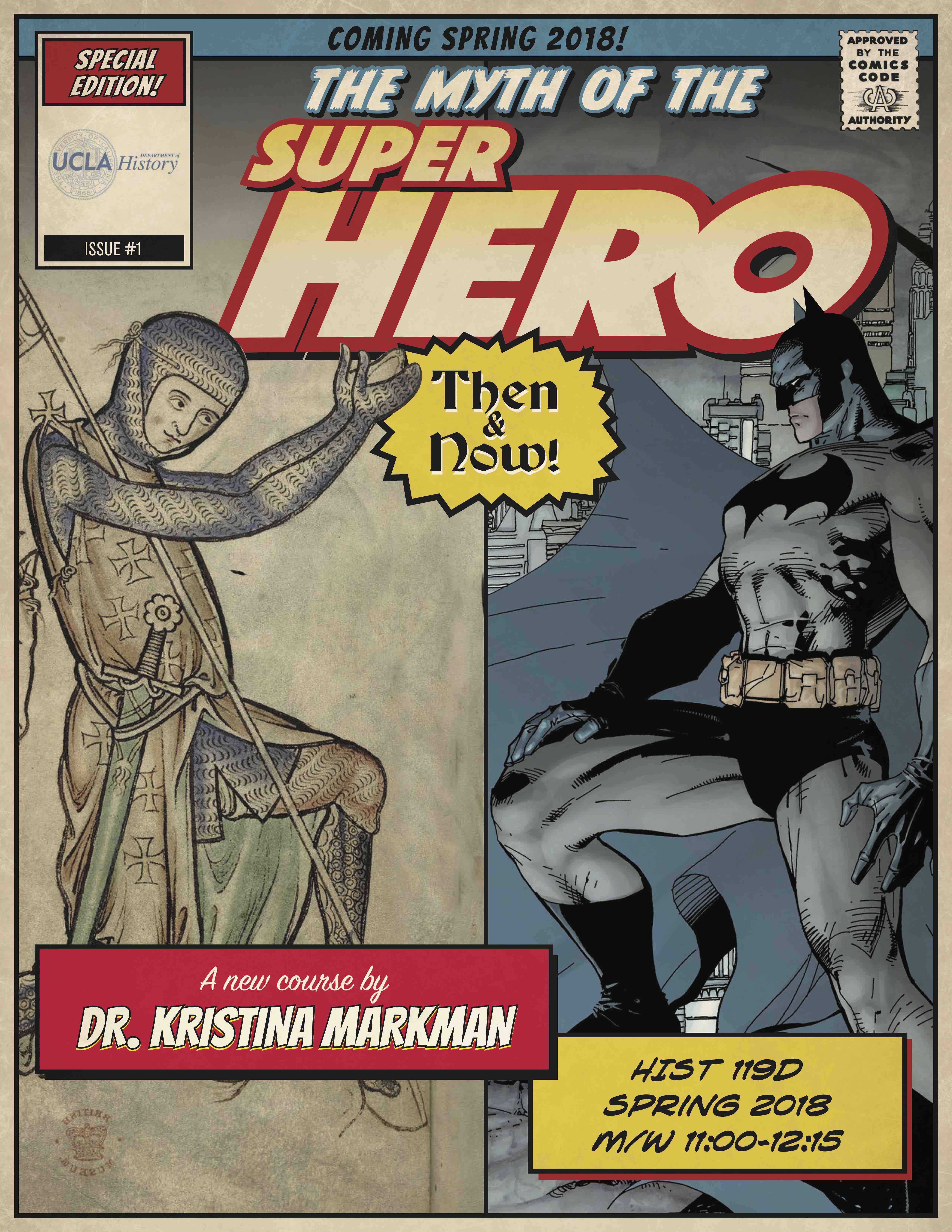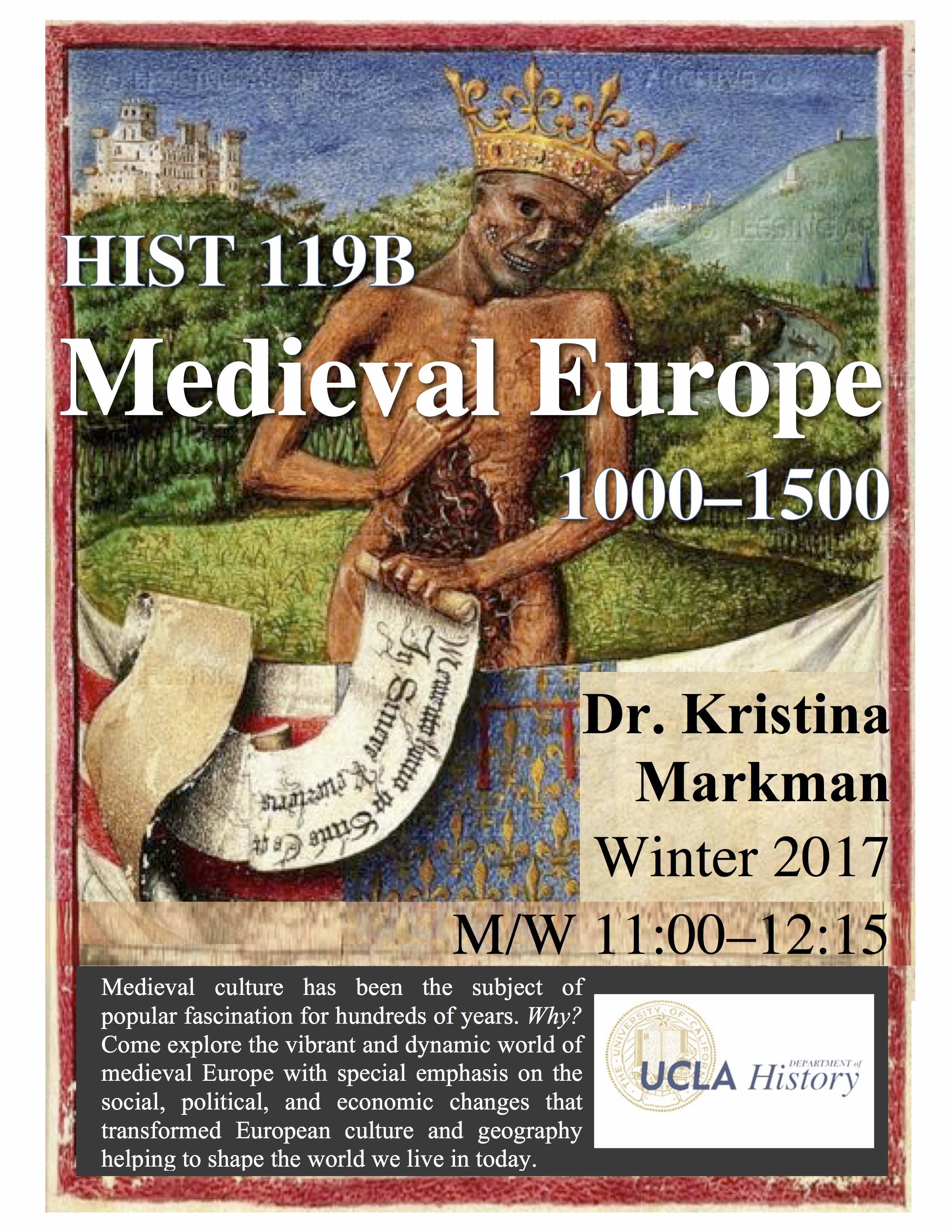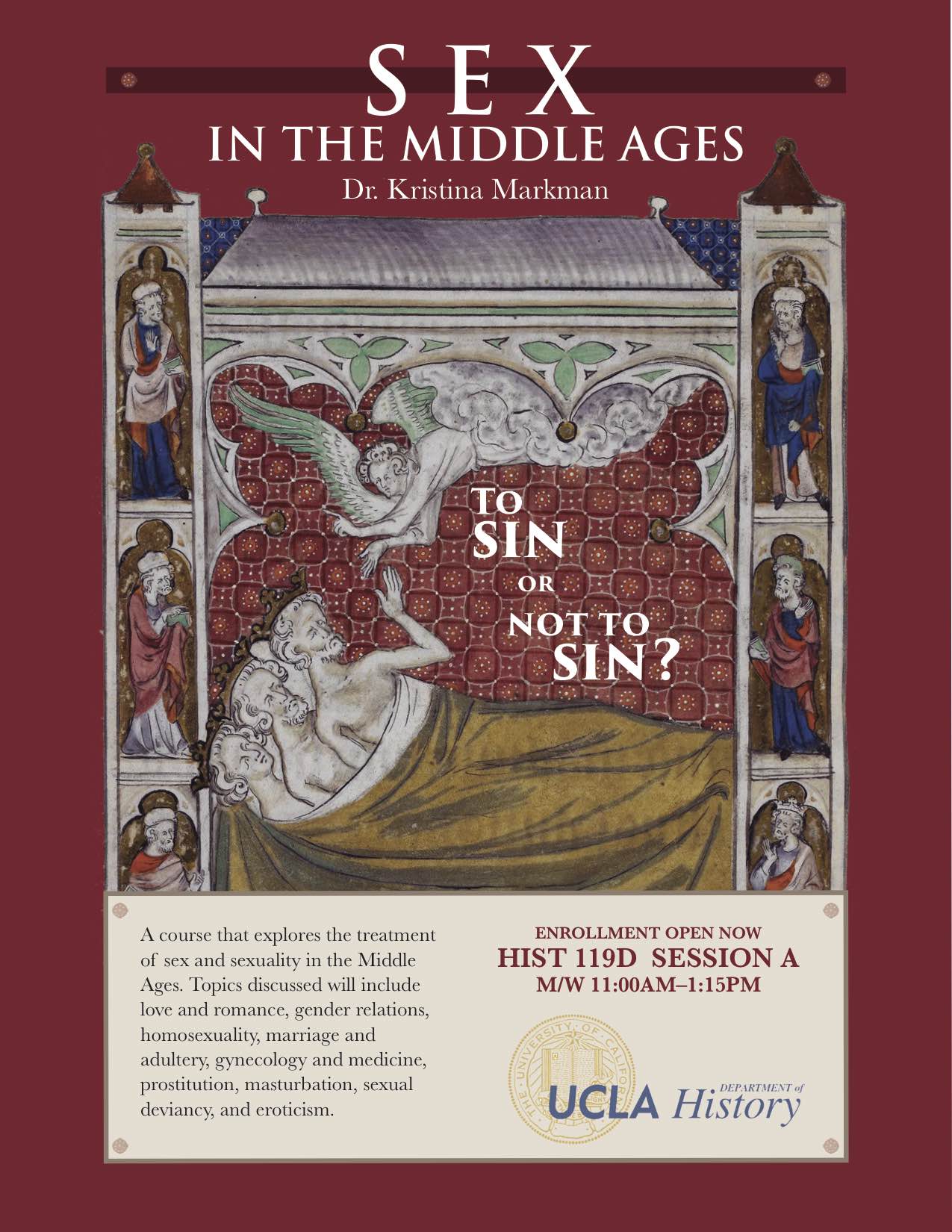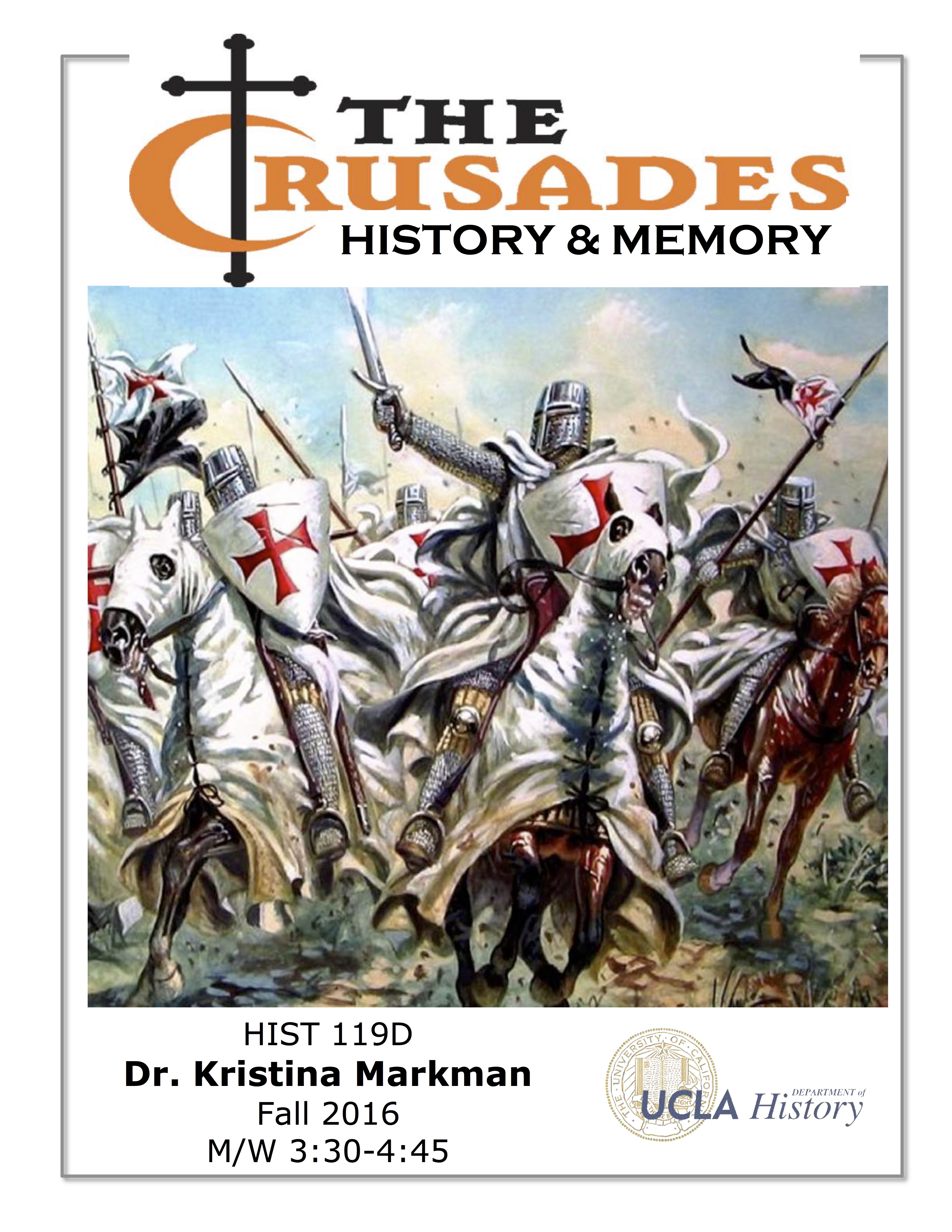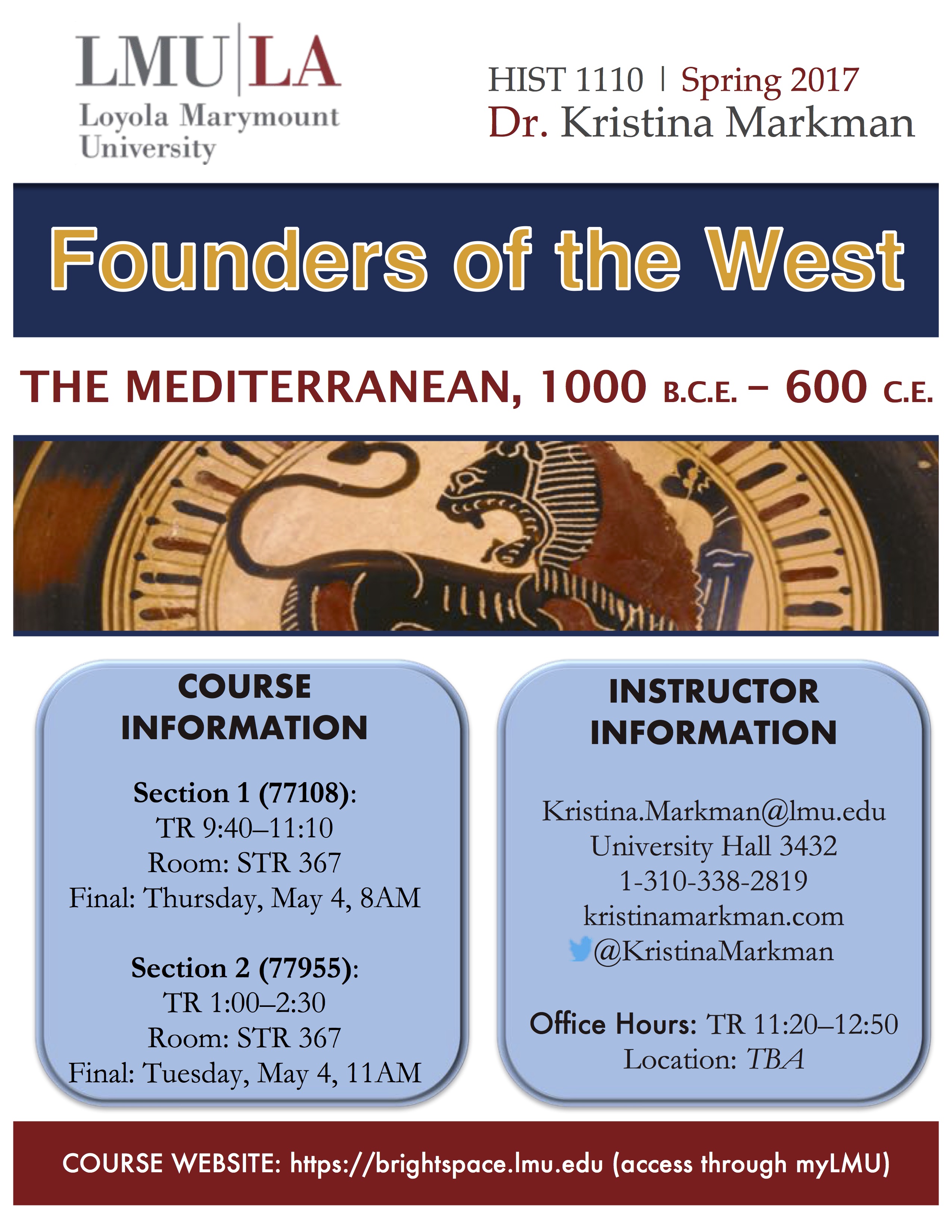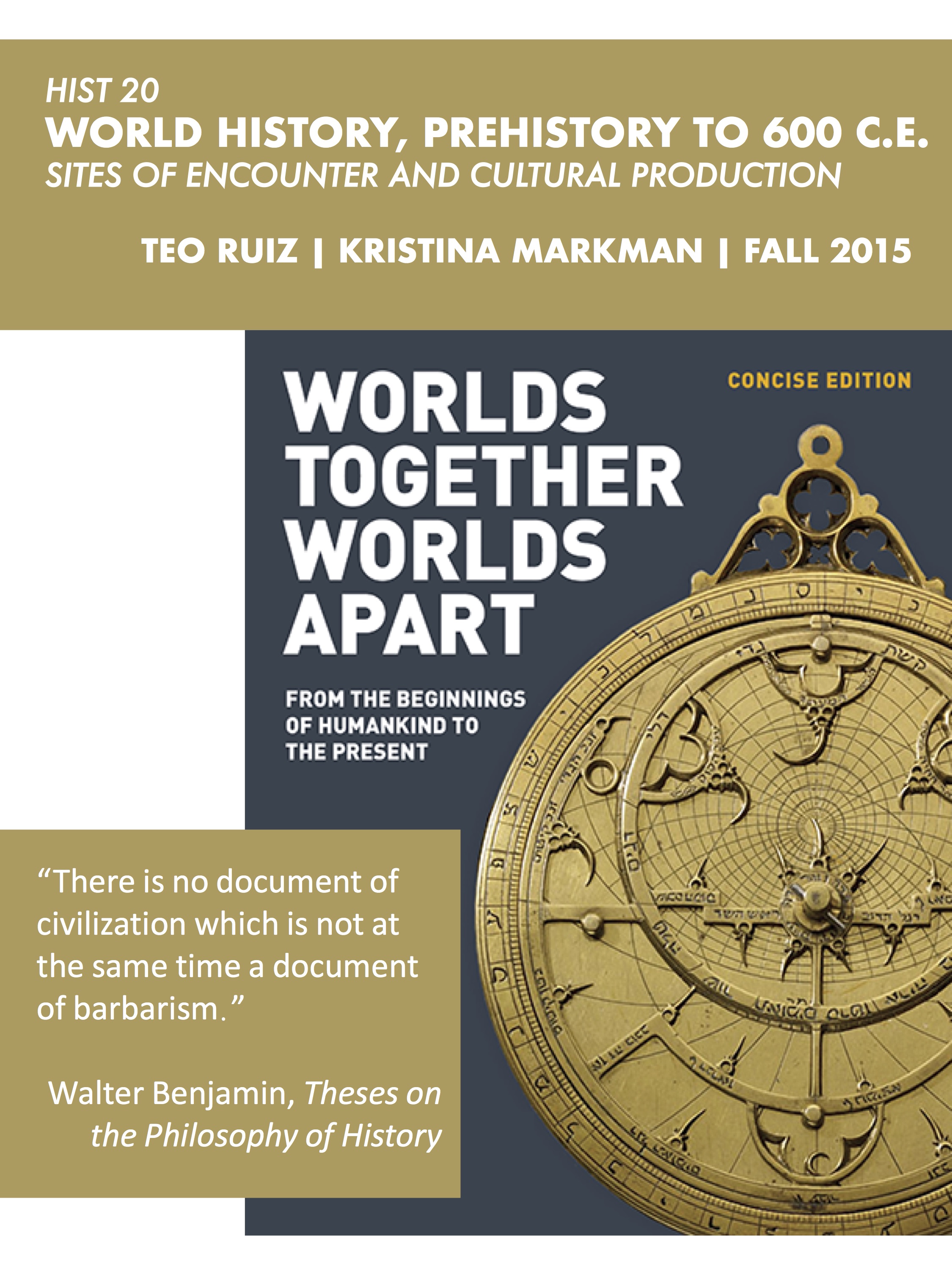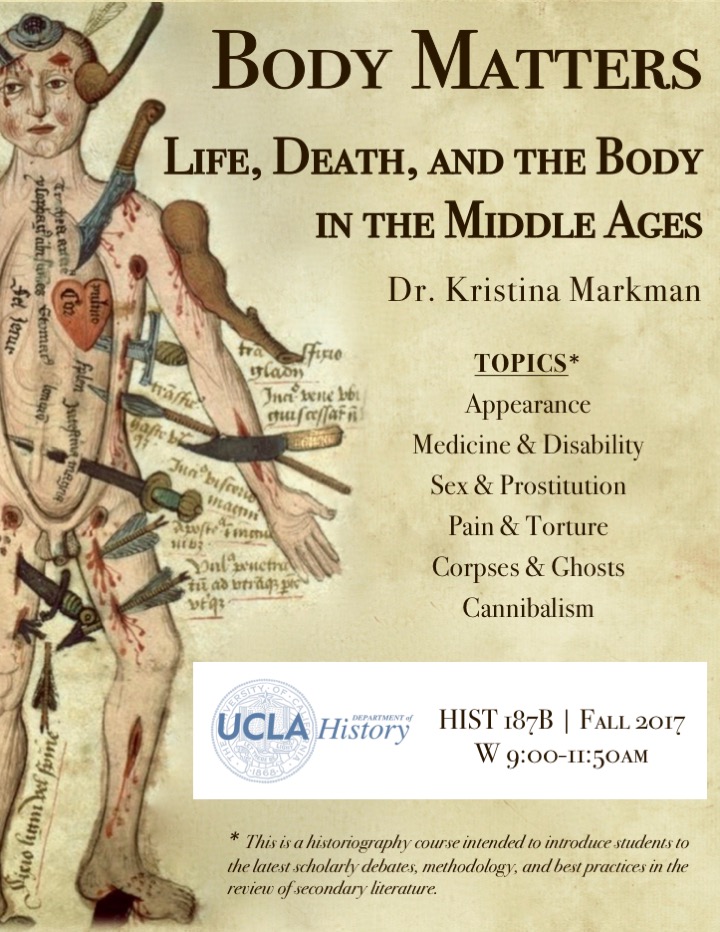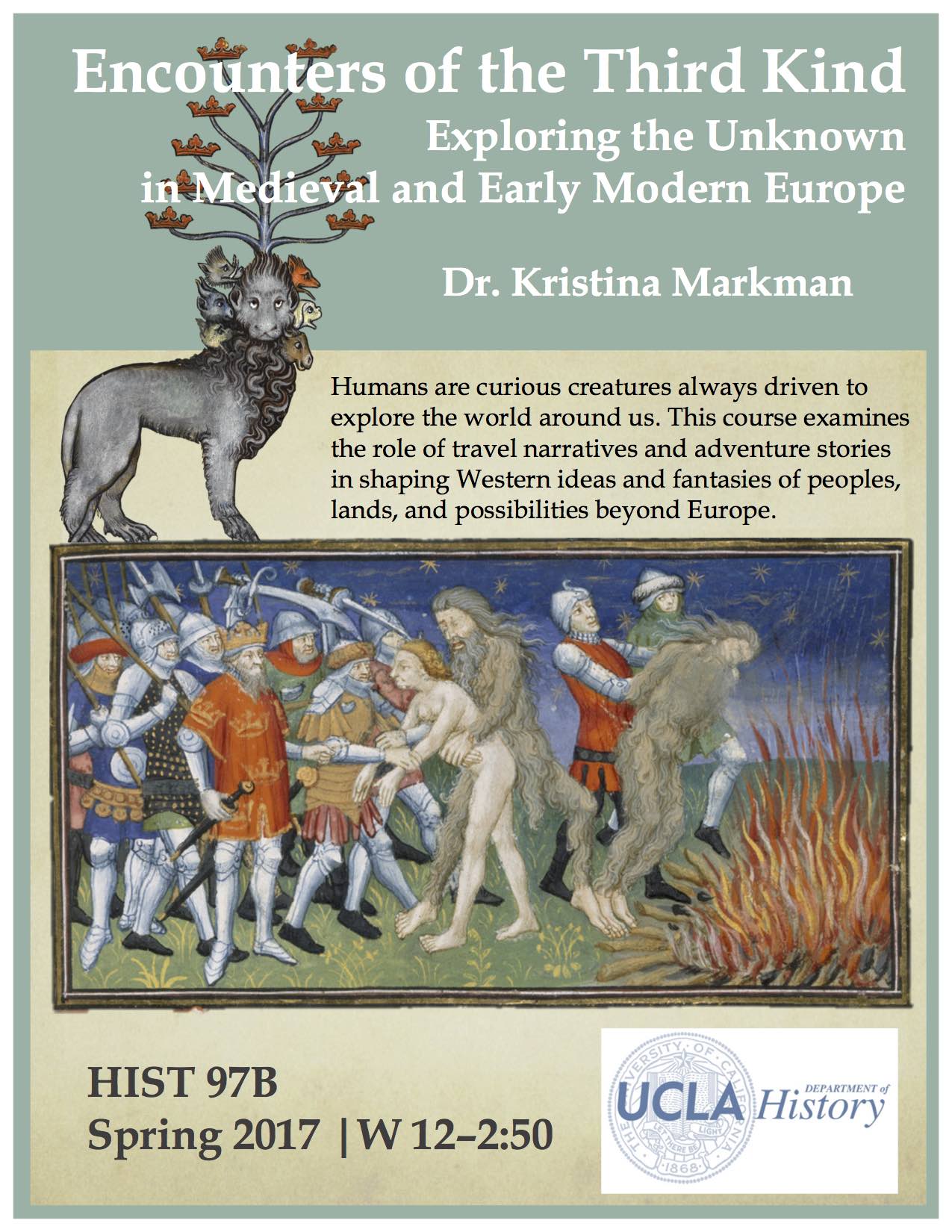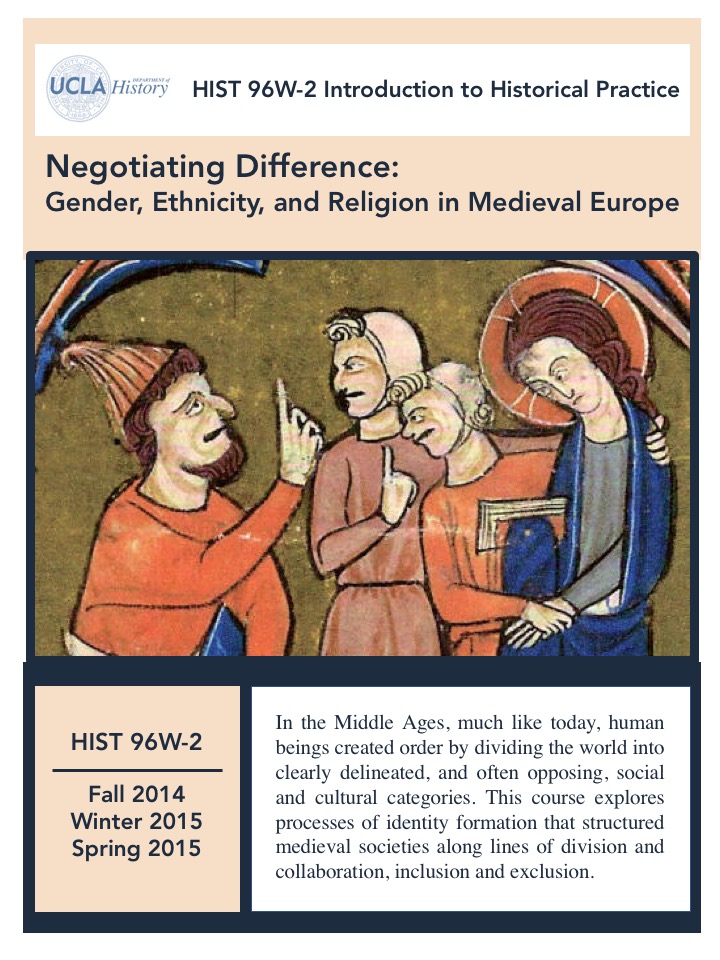Western Civ I/II – These course are intended to familiarize students with the historian’s craft and introduce students to the cultures that helped shape the world in which we live today. Student Learning Outcomes include (1) to learn how to read and analyze primary sources, and (2) to use primary sources to formulate a critical argument about the past. Special attention is given to the following topic:
- the role of heroes
- forms of law and order
- intellectual, artistic, and scientific achievements
- the development of religious sensibilities and ethical systems
- the the rise of the nation-state, development of empire and imperial ambitions
Europe and the World, 1200–1680 (World History)– This course examines the dynamic transformation of world cultures across four centuries of social, religious, political, and commercial change. There are two versions of this course. The first takes a global approach and the second focuses on urban expansion and intellectual production in the West. Both curricula consider the consequences of the Great Global Convergence and the fragmentation of the ‘universal’ church, paying special attention to the development of new forms of cultural expression in response to periods of perceived crisis and expansion. The course ends with a role playing game and religious debate.
The Myth of the Superhero – Heroes are created. They embody the values that we most admire and characteristics that we desire in ourselves. This course examines the evolution of the heroic ideal in Western Civilization from antiquity to present-day with an emphasis on the Middle Ages. Using primary source texts, the course challenges students to contextualize the experience of heroes in the Western tradition by asking the following question: What are the characteristics of X hero? What do the characteristics and experiences of X hero reveal about the society that admired X hero?
Assignments include a Autobiographic Comic Book and Analysis and Group Essay.
Medieval Europe, 1000–1500 – culture has been the subject of popular fascination for hundreds of years. Why? This course explores the vibrant and dynamic world of medieval Europe with special emphasis on the social, political, and economic changes that transformed European culture and geography helping to shape the world we live in today.
Sex in the Middle Ages – The Middle Ages played a critical role in the construction of modern Western sexual and gender identities as well as our conception of love and romance. This course explores the treatment of sex and sexuality in the Middle Ages. Topics discussed will include love and romance, gender relations, homosexuality, marriage and adultery, gynecology and medicine, prostitution, masturbation, sexual deviancy, and eroticism.
Note: This is a project-based course; in lieu of daily readings, students complete several written and visual projects engaging with classmates and the community. Example: Getty Center Visit and Art Fair. Please contact me, if you are interested in learning more about other projects.
The Mediterranean, 1000 BCE –600CE – This course explores the interaction of Mediterranean cultures in the ancient world. It begins with developments in the Fertile Crescent and the eastern Mediterranean, particularly the rise of Greek culture, and its legacy in Eurasia. It then moves westward to the Italian peninsula examining the development of Roman culture, its assimilation of Greek cultural modes, emphasis on civic institutions, and imperial policy. Finally, it considers the place of Christianity in the Roman Empire and the many challenges faced by the world of late antiquity. The midterm examination is a role-playing game and political debate.
World History, Prehistory-600 C.E. – Moments in which different peoples and cultures encountered each other were often violent, but also generated new cultural forms. Such encounters transcended geographical space and facilitated the exchange of new ideas, products, and technologies. This course is intended to introduce students to the history of mankind from the beginning of our species to around 600 C.E. by focusing on times of conflict, collaboration, and cross-cultural exchange.
Note: This course was taught in two parts: lecture plus discussion section. The attached syllabus includes a week-by-week assignment and activity guide for section.
Research and Writing Seminars
Body Matters: Life, Death, and the Body in the Middle Ages – The human body has fascinated and perplexed cultures throughout time. The body and its condition as a source of pleasure and pain, health and disease, birth and death, success and failure, reward and punishment is the subject of imagination, literature, scientific inquiry, philosophy, and religion. This courses examines perceptions of the human body in the context of medieval intellectual cultural. It explores the importance of the body in the conception of self, attitudes toward physical appearance, pain, torture, sexuality, the handling of corpses, cannibalism, and ghosts. The main objective of this course is to familiarize students with the skills of deconstructive historical analysis through the examination of secondary literature. Students will discuss current historiographical trends and learn to critically review and evaluate historical arguments.
Encounters of the Third Kind: Exploring the Unknown in Medieval and Early Modern Europe – Humans are curious creatures always driven to explore the world around us. This course examines the role of travel narratives and adventure stories in shaping Western ideas and fantasies of peoples, lands, and possibilities beyond Europe. The course is guided by the following research question: What do Western (European) accounts of non-Western places and peoples (real or imagined) reveal about Western society and the intellectual culture of medieval and early modern Europe?
Note: While the weekly readings in the course focused on the Middle Ages, students could choose to research any time period as long as their primary source described an encounter between a Western traveler and a world yet unknown to the West. Research Paper topics ranged from ancient and medieval travel narratives to Gulliver’s Travels and Hitchhiker’s Guide to the Galaxy.
Negotiating Difference: Gender, Ethnicity, and Religion in the Middle Ages – In the Middle Ages, much like today, human beings created order by dividing the world into clearly delineated, and often opposing, social and cultural categories. This course explores processes of identity formation that structured medieval societies along lines of division and collaboration, inclusion and exclusion.
The goal of this course is to introduce students to history-specific writing methods. Each week students will read a “Primary Source Packet” designed by the instructor with primary source excerpts, introductory notes, and commentary. Occasionally students will also read secondary sources. All assigned secondary sources engage with the primary sources in the packet. Students will be asked to parse these texts in class in order to determine the structure of the author’s argument and consider the author’s use of source evidence. Example “Primary Source Packet”- Men I
